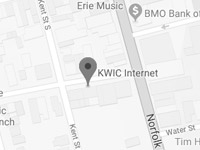We all love to simply get online and get things done. However, what if you’re experiencing a slowdown on your home internet network? Frequent lag and other problems are the last things we want to think about when trying to tackle emails, get in touch on social media or browse Netflix to our hearts’ content. Before you slam the lid of your laptop shut because YouTube keeps buffering, let’s dig in and figure out just what’s going on with your connection. Today, we’ll go over some of the most common reasons why your home internet is slow.
Network Traffic
Are your kids having a sleepover party with a bunch of friends, all of whom are on computers and tablets? Or, are you uploading and downloading a lot of content at the same time? This can lead to a spike in network traffic. A common cause for slow internet speeds at home is this traffic surpassing bandwidth allocations on your connection, which can vary in size depending on which plan you pay for on a monthly basis. Regardless, all the devices currently active on your home internet network are vying for that precious space. Think of it as a bunch of cars trying to merge onto a highway to deliver passengers as quickly as possible – the more there are on the road, the longer it takes. Disconnecting devices that aren’t in use can help in this regard, as well as making sure that computers aren’t performing a bunch of bandwidth-hogging background downloads.
Data Caps and Throttling
Speaking of usage, what happens if you use up your allotted data use for the month? Well, usually you’ll encounter limited connection speeds. This is otherwise known as throttling, and it’s common if you do a lot of downloading, streaming, or online gaming – tasks that eat up much more data than simpler operations such as checking email or browsing the news. Throttling can also occur depending on the time of the day compared against the strength of your network, however – even if you’re under your data cap. This happens because your Internet Service Provider (ISP) needs to ensure all their users can get online, so evening periods are typically very busy and demand some form of throttling to handle user loads on the network platform. Choosing an ISP that builds their network to withstand busy hour is an important task. Remember, when it comes to internet plans, a price that seems too good to be true probably is!
Interference
Do you have a lot of metal near your modem and/or router? What about the area around your computer where its internal Wi-Fi card is located – is it clear? There are plenty of materials that can interfere with an internet signal in your home. Always try to keep such areas clear, organized and with good cable management; it’s always possible that Fido might think of your Ethernet cable as a new chew toy, after all.
Problematic Routers and Modems
Not every modem or router is made the same – actually, there are some that are pretty crummy. It’s why we at KWIC Internet ensure that our customers benefit from the best-performing, most dependable solutions in their plans. Routers and modems are the primary devices used to get you online quickly, securely, and reliably. They receive the line from your internet connection and then wirelessly distribute the signal so you can access the web. Your best bet is a combo router and modem, as otherwise, you’ll need to keep an eye on two different systems. If you’re running into trouble with slowdowns, you could try resetting the device, moving the location around, adjusting any antennas, performing diagnostics from Windows 10’s Wi-Fi settings, and more.
ISP Service Problems
One of the other potential causes of slow home internet is something that’s out of your control: Issues with your ISP’s networking. They could be setting up new customers and make mistakes when routing new lines, encountering increased network use that bogs it down for everyone, and more. This is why you’re better off working with a competent, experienced and proactive ISP – they work harder to ensure maximum uptime at the speeds you expect. KWIC Internet takes great strides to ensure network stability, for instance, implementing precautions for setting up new connections or making changes to existing ones at the request of customers who upgrade their plans.
All in all, having home internet is much smoother, more reliable, and cost-effective than it was even half a decade ago. If you’re running into network slowdown, don’t assume that it’s your computer that’s causing it – there are a lot of variables to consider! If you’re running into trouble or not getting the performance you expect, contact us today at KWIC Internet; we’ll get you up and running at the speeds you deserve as quickly as possible thanks to our renowned and knowledgeable support services. Make your time online a pleasure instead of a pain!
